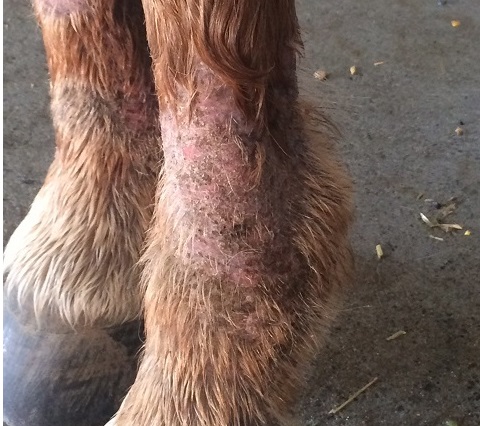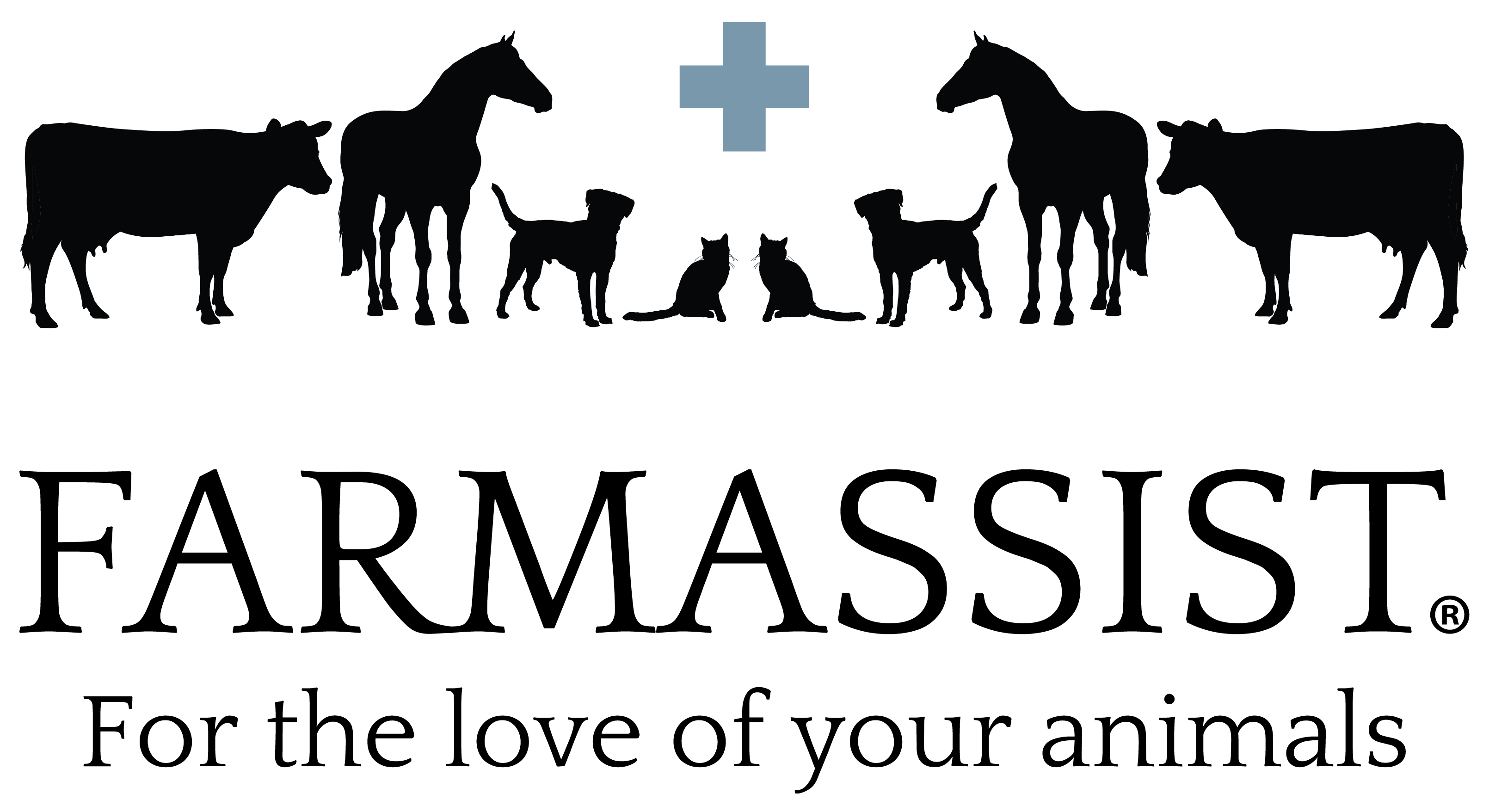
02 Apr 3 Common Skin Conditions and How Farmassist Can Help
Seeing that something isn’t quite right with your horse’s skin can be frustrating and at times overwhelming. Three of the most common skin conditions are mud fever, rain scald and sweet itch. Farmassist can help you treat all three.
Common Skin Conditions Farmassist Can Help With
Mud Fever
Most commonly known as mud fever, this skin condition is caused by bacteria or fungi that thrive in muddy conditions. Because of this, it is common during wet weather, but can also occur at other times in the year. It causes irritations like dermatitis on the lower limbs of the horse, which can be extremely painful.
A horse’s skin is the ideal environment for bacteria, fungi and other parasites to live. They feed on natural waste and cause no harm until the hair follicle is damaged. Then the bacteria or fungi enter the skin and cause the infection most commonly known as mud fever.
Symptoms of Mud Fever:
- Matted areas of skin that can contain varying sizes of scabs. It appears mostly to the legs but all parts of the body can be effected
- Small crusty circular lesions on the horse’s skin
- Thick, creamy discharge under the scabs
- Deep crusty, painful scabs on the skin
- Swelling to the legs is common
- A vet must be called for severe cases of mud fever in case of severe infection
Treatment of Mud Fever using Farmassist products
The first step to treat mud fever is to remove the scabs. The skin should be washed down to remove as many crusty scabs as possible. You can do this by using a product like sunlight soap, and picking the scabs off with your fingers or a brush. In some cases, this will cause bleeding.
Apply either the Farmassist Antibacterial Healing Spray or diluted Farmassist Antibacterial Wash to the affected area to kill the bacteria and fungi present on the skin. Farmassist Healing Spray contains healing properties which sooth the skin, speed the healing process up, and alleviate swelling to quickly treat skin irritants like mud fever. Farmassist Antibacterial Wash works in the same way, you just need to ensure you use a diluted version without essential oils.
Clipping the legs will also speed up recovery.
Prevention of Mud Fever
The best way to prevent mud fever is to minimise the above conditions for your horse.
Regular grooming & washing with Farmassist Antibacterial Wash reduces the risk of infection by actively dealing to bacteria and fungi before it becomes a problem, especially over winter months. It can also be used to disinfect your horse’s equipment and any animal environment.
Rain Scald or Rain Rot
Rain scald is caused by the same bugs that cause mud fever.
The bacteria and fungi are carried on the horse’s skin, and only leads to rain scald if the skin is broken or damaged. This is generally caused by wind, cold and rain during cold winter months. Where mud fever is usually located to the lower limbs of the horse’s body, rain scald presents on other parts of the horse, like their back.
Rain scald thrives in extreme moisture, hence the name. Often equipment like brushes, saddles or blankets can house the infecting bugs and transfer it to the horse’s skin upon contact. Horses with heavy coats that hold moisture close to the skin are more susceptible to rain scald.
Symptoms of Rain Scald
- In the early stages you will be able to feel bumps on the horse’s skin or under their coat
- Large crusted scabs
- Small matted tufts of hair
- Dozens of tiny scabs with embedded hair
- Pink skin and Puss under crusty painful scabs
Treatment of Rain Scald
Like mud fever, the horse must be kept clean and dry. Then the bacteria and fungi must be killed to allow the skin to heal. Farmassist has active ingredients that both kills the bacteria and fungi, and heals the affected area.
Soak the horse’s grooming equipment in Farmassist Wash for a minimum of ten minutes at least once a month or more often if treating an infected horse. Using the above methods will enable the healing process to start.
Prevention of Rain Scald
The best way to prevent rain scald from occurring is to keep all equipment clean and disinfected with an Antibacterial Wash like Farmassist. Regularly wash your horse’s grooming equipment, and covers with Farmassist to remove any organisms present on the skin.
Sweet Itch or Summer Itch
Sweet itch is also known as Pruritus and describes the unpleasant sensation that leads horses to scratch, bite, or rub at their skin. The condition sweet itch is caused by stimulating nerve endings in the skin. This is normally done in three ways, insect bites, allergies or infection. Allergies or infections can occur all year round, but sweet itch triggered by insect bites is often seasonal in the warmer months.
If a number of small itches combine to a severe itch, then the horse can cause severe damage to themselves and their environment. Sweet Itch can become more serious if bacteria and fungi enter the skin like they do for mud fever and rain scald.
Symptoms of Sweet Itch
- Mild to severe itching along the mane, back and tail
- Loss of tail and mane hair
- Bald patches
- Areas of sore, open and broken skin
Treatment of Sweet Itch
Once the cause of the itch is established, then treatment involves combatting the trigger and providing relief to the itch. This can be achieved by using Farmassist Healing spray to sooth and kill any pathogens on the irritated skin.
Prevention of Sweet Itch
Areas that breed biting insects should be cleaned regularly, such as water troughs. Keeping your horse in a higher paddock can reduce the risk of biting insects. Stable your horse in the evenings when biting insects are most common, or cover the horse’s skin with a cotton sheet. Regularly washing your horse & their covers with Farmassist wash. This can keep the skin fresh, the equipment clean, and reduce the risk of irritation and prolonged skin problems.
Have you been looking for a broad spectrum disinfectant, that is antibacterial and has healing attributes, to use in the care of your horses? Then Farmassist products are for you. Find out where you can purchase here.
If you have any concerns about the health of your horse, then seek the advice of your vet.

Sorry, the comment form is closed at this time.